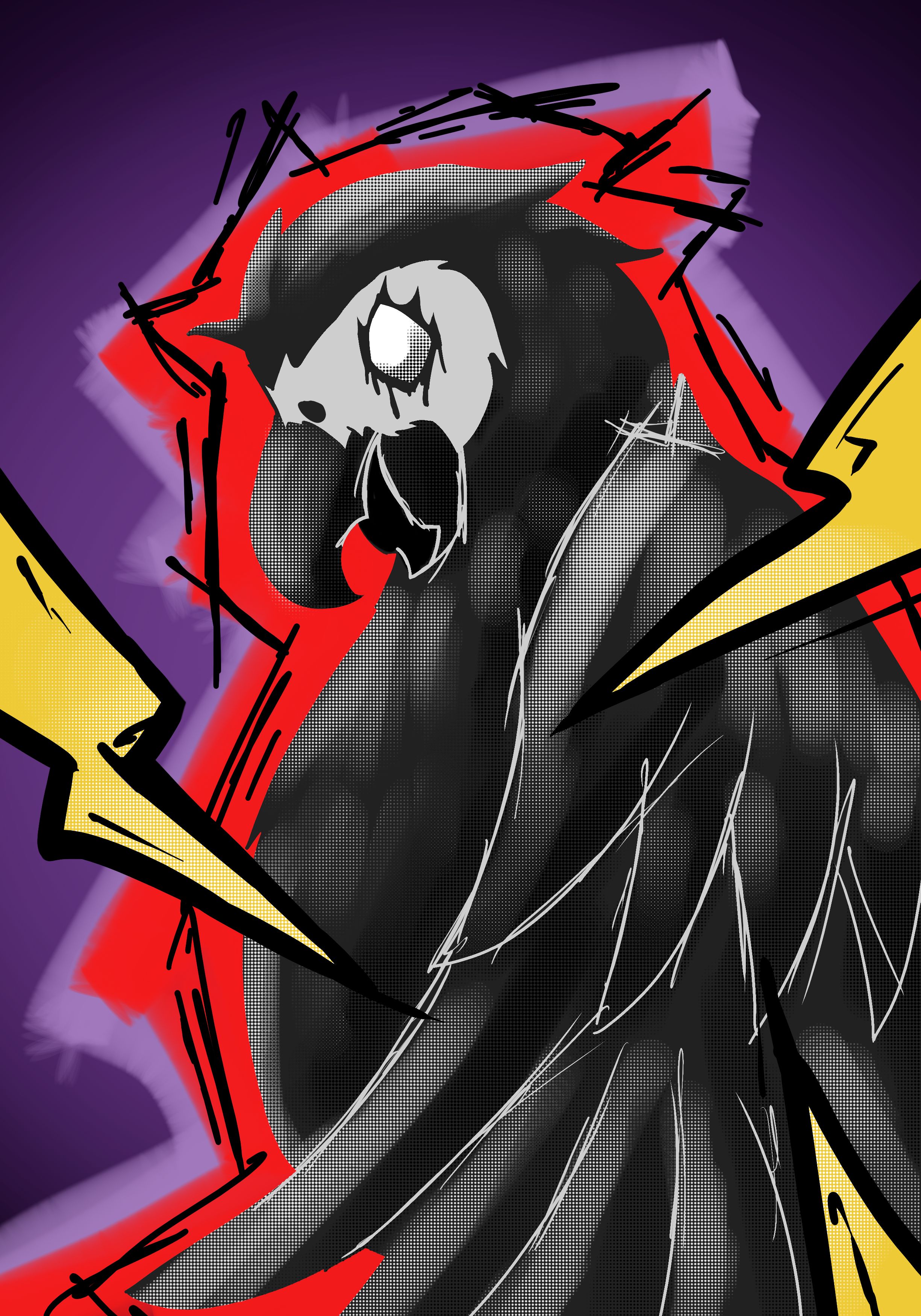The flight system allows a plane to be remote operated by a pilot on the ground, which could streamline pilot airline operations in the future.
Better wages and work life balance would also solve the pilot shortage. It’s one of those jobs where companies over rely on people’s passion for the profession in lieu of treating and paying them what they deserve.
A decade ago, my pilot friend informed me that after 4 years of college, starting pay was $18,000 a year. After a year of experience suddenly you’re making 4 times that. Not a lot of people can afford to make that measley income for a year. It’s not a sustainable way to recruit talent.
Then there’s the issue is being on call when you’re the lowest seniority in you’re position where they can call you anytime a pilot calls in sick and you have to be at the airport in 30 minutes.
You can make a lot of money, but there’s a lot of bullshit to deal with at the start of your career.
You’re also gone from home all month and don’t see your family, sleep with a bunch of other poor pilots in a flop house, then come home and get your crappy paycheck for less than minimum wage after you do the math of how long you were away from home.
Not anymore for most pilots. Pay has skyrocketed.
For a recent example, Southwest Airlines pilots just won a 50% raise over 5 years, including 29.15% immediately.
That thankfully isn’t true anymore. Pilots are now very highly compensated from the jump.
I remember back in the 80s (middle school career days) commercial pilots were near the top of paid professions, topping 100k on average.
Lowering the costs of flight school would help more, making shitty money is one thing. Making shitty money when you dropped 200k to get there is another.
Pilot shortage? I know more unemployed pilots that tech workers.
Right? There’s no pilot shortage. Like with every other labor shortage it’s a wage issue.
It’s not just about wage. You could have great pay but terrible working conditions will discourage pilots from applying.
Never heard my retired uncle say a single good thing about his work as a captain for a commercial airline. Cheap tickets comes at a price.
Our modern economy and world are built on the need for wage stagnation. Unfortunately that only lasts so long and we’re reaching the end of it. That is going to come with a massive correction that is going to be pretty painful for the masses because the last thing the rich want to do is not be making as much money. So how they handle it will determine whether they live through it or find out what it’s like to be looking at the inside of the basket at the end of a guillotine.
I’m pretty sure they don’t get paid anywhere near what they’re worth. Same old story in the US: anything that’s important to society, has to do with people’s health, safety, education, and so on.
There is no possibility of this ever causing negative effects of any kind, certainly it will not ever be misused (like one pilot being pressured into flying 5 planes at once bc… profit).
- Elon Musk, probably
This is what I expect to happen to truck drivers first. Automating driving still needs help in the last mile conditions but can navigate distances easily. I foresee fleets of automated trucks which are remotely connected to pilot centers where truck “drivers” sit at simulated driving stations and connect from truck to truck as they enter or leave warehouses or transfer stations. Instead of a small percentage of high-stress driving separated with stretches of monotony, it will be 8 hours a day, 5 days a week of high stress operating.
I would bet more in the range of 20 to 30 in any 8 hour shift.
Don’t most planes fly almost entirely on automated systems nowadays? The pilots mainly handle takeoff, landing, and monitoring the instuments if i’m not mistaken.
That said, remote controlling a plane of any kind seems like a very, very bad idea, cargo or not. If the 737 Max prevented pilots controlling the plane from the actual cockpit, I’d not like to think about what a similar plane would do in the event of a poor radio control signal and faulty instrumentation
Pilots aren’t paid to manually fly the aircraft from A to B. They’re paid to handle emergencies and abnormal situations. The kind of situations that automated systems are extremely poor at handling.
TIL, thanks for the info!
Yep.
If you want to see why we need highly trained, highly skilled pilots, with strong work ethic and principles, just go watch The Flight Channel.
When systems fail (and they do all the time), these are the folks ensuring you make it to the ground at an appropriate speed (or not).
“You never want to run out of airspeed, altitude, and ideas”. We’re a long way from tech itself generating ideas on the fly.
Thousands of military drones have been remotely piloted for decades. This news isn’t as ground breaking as it might seem. Some of these drones are large: https://en.m.wikipedia.org/wiki/Northrop_Grumman_RQ-4_Global_Hawk
I know a military drone isn’t the same as a passenger carrying airplane, but for cargo I think the only reason this isn’t already a thing is because drones are military tech and most governments don’t want that falling into the wrong hands.
My first thought was it’s already being done with drones.
I’d be curious, what the military’s loss rate is to non-combat issues.
You’ve been hacked. Pay 500 BTC to regain control of engines and landing gear.
Yeah autonomous flight has been a thing for 50ish years. But there will always be edge cases. Plus A lot of the safety we have in aviation that we have today is due to the two pilot system where every action is checked by your fellow pilot. I can’t see a near future where two pilots in the cockpit are not required for safety.
It’s a good thing that critical instruments never fail and need human intervention.
That’s fine for cargo planes over remote routes.
Aside from planes being really expensive to replace, they usually contain some toxic chemicals like fuel, hydraulic fluid, and exotic metals. The lack of loss to human life might be nice, but it presents other complications.
Until it veers over non-remote areas.
One interference away from crashing in a residential area…
I’m more worried about it going into another skyscraper.
I’m fine with self-flying cargo planes with no human passengers flying over uninhabited areas besides landing/takeoff.
Predicated, of course, on radio frequency communication being 100% reliable, 24/7, 365.
Which they are not.
I wonder how does ATC talk to the plane. Does it get routed to the remote pilot? The article describes controlling the plane through a series of menus. Does the pilot have enough flexibility when something unexpected happens like a sudden weather change or bird strike?
The innovation
Do they just not keep up with things at all? lol
I’ve seen a tesla ‘self driving’ hit the breaks when approaching a bridge. No f-ing way am I flying on an AI-piloted plane.
If you fly commercially then you’re flying in an airplane that flies mostly autonomously. The vast majority of the pilots interaction is during takeoff and landing. The rest of the time it’s pretty much flying itself.
One huge difference between commercial aircraft & cars is that the air traffic is highly regulated. There are specific corridors & altitudes, distances between aircraft that must be maintained, and ground based controllers are monitoring and directing everything. It’s not even remotely like the free for all on the highways.
There’s still a pilot onboard if they need to takeover, what this article is describing is like having a ground based drone operator.
“To address the pilot shortage”, ok so how long until each ground based pilot is flying multiple aircraft?
Since a pilot is mainly only needed for take off and landing 99.9% of the time, I’d bet not much longer. Getting from an to the ground are the hard parts. Even then, during optimal conditions, you probably don’t even need the pilot, so it’s likely you’ll get pilots monitoring multiple aircraft from take off to landing and only interceding when an emergency arises. In time it’d probably become something they can do from their own homes. Then after they’ve collected enough data and trained the AI with it, they’ll be able to do away with the human pilot altogether.
Any task humans do that don’t rely on smell or taste you can train an AI to do. The problem is no longer if you can make a machine smart enough to do it, the problem now is do they have enough data to train it. By making pilots remote they’ll be able to gather that data easily. Once we develop sensors that can perfectly mimic taste and smell, humans will only be needed for manual labor.
You have a grossly oversimplified understanding of human input during a flight. Once at altitude and cruising autopilot can be used, but a certain amount of hours actually flown as well as takeoff and landing are required, and AI isn’t near good enough to take-over during an emergency the way a human operator can react to the situation.
Also manual labor won’t be a thing for long, Boston Dynamics is making progress hand over fist when it comes to quadruped and biped robotics. The moment we train models to handle labor jobs they’ll be out the door as well.
It’s worrying enough that faulty instruments and sensors can cause your pilot to just manually crash, let alone the autopilot.
This isn’t about AI and has nothing to do with whatever bullshits Musk is/was up to. They basically integrated drone tech into a Cessna and flew it remotely from a ground base. It’s drone tech combined with an autopilot—fairly basic and proven, already utilized in military, agriculture, and hobby industries. Also its for cargo not humans.
“pilot shortage” meaning “pilot salary shortage”. Fixed that.












